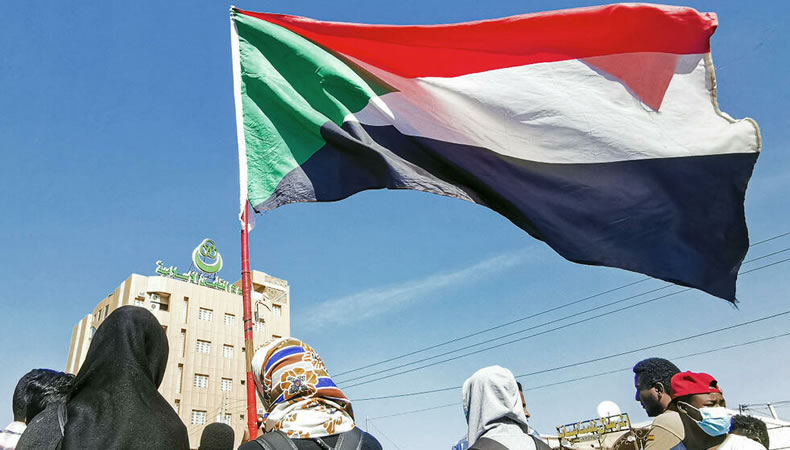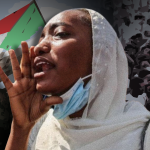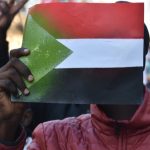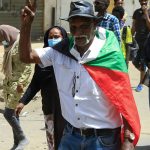Tensions between the Sudanese military and the UN mission are rising


The tensions may have an impact on the UN mission’s efforts to assist Sudan overcome its catastrophic political crisis, which began in October 2021 with an army-led coup that shattered dreams for democratic transition. Sudan is attempting to transition to civilian democratic administration after decades of leadership by former dictator Omar al-Bashir, who was deposed in April 2019 following a popular revolt. However, Sudan’s army leader and de facto ruler, Gen. Abdel Fattah al-Burhan, openly threatened to eject the UN special representative in Sudan, Volker Perthes, for intervening in the country’s affairs and exceeding his mandate’s powers.
On April 1, during a graduation ceremony at the Sudanese Military College, Burhan warned the UN ambassador that if he continues to ignore the mission’s mandate and intervene in Sudanese affairs, “we will toss you out.” Burhan further urged the United Nations and the African Union (AU) to “promote discussion between Sudanese and not to comment about topics with which they have no involvement.”
Related Posts
UNITAMS’ efforts in Sudan are guided by Security Council Resolution 2524, according to Fadi el-Qadi, the UN mission’s official spokesperson. According to Qadi, their mandate includes four strategic goals: assisting with the political transition, progress toward democratic government, human rights preservation and promotion, and long-term peace.
Perthes’ remarks before the UN Security Council on March 28, in which he denounced “the lack of a political consensus to return to an acknowledged transitional route” in Sudan, prompted Burhan’s words.
Perthes believes that unless the transitional phase is restored under the leadership of civilians who were deposed by Burhan, Sudan would face economic and security collapse, as well as significant human misery.
The UN envoy also mentioned the high level of crime and disarray, as well as the killings of anti-coup protestors, security forces assault against women, and arrests of activists and protest leaders.
Later, at Perthes’ request, Burhan met with him and told him that the UNITAMS mission should “stand at an equal distance from all political parties, including the army.” Perthes made it clear that his testimony to the Security Council was based on material produced by his office in Khartoum, and he stated that any erroneous information would be investigated. In January, the mission had preliminary meetings with Sudan’s political actors in an attempt to resolve the country’s present political situation. The effort was well-received on a global scale.
The UNITAMS-facilitated discussions, which lasted five weeks, revealed that the Sudanese agree on more important issues than they realize, including “the necessity for a halt to violence, a technocratic administration or a government of experts, and a transitional legislative council,” according to Qadi.
UNITAMS has stated that its role is restricted to assisting the political process and has urged Sudanese parties to reveal their plans for moving forward. However, pro-democracy organizations and political parties that were deposed as a result of the military coup refuse to engage in direct negotiations with the military.
The mission launched a coordination mechanism with the African Union and the Intergovernmental Authority on Development (IGAD) on March 29. “The purpose of this unique collaboration remains the same,” Qadi said. “That goal is to support an inclusive, Sudanese-owned, and Sudanese-led political process to address the current situation.”
Qadi, on the other hand, urged the country’s governing military authorities to support the political process, calling for a halt to violence, the release of political detainees, and a solid commitment to ending the country’s current state of emergency.
Protesters have been coming to the streets on a daily basis since the military coup in October 2021, clamoring for civilian government, but security forces have murdered more than 90 people so far, according to an independent Sudanese medical group.
According to sources close to army officers, the UN mission is siding with pro-democracy parties. UNITAMS claims to be unbiased when it comes to the country’s commitment to defend human rights, freedoms, and democracy.
The army chiefs originally backed the UN idea, according to Osman Mirghani, a Sudanese political expert and editor-in-chief of the independent daily Al-Tayar newspaper. He told Al-Monitor that the initial conversations “reached virtually unanimity to remove the military component from the authority,” prompting Burhan to threaten to expel the mission and put an end to its operations.
Mirghani, on the other hand, feels that the meeting between Burhan and Perthes has helped to alleviate some of the tension between them. “This may place Sudan in a clash with the world community,” Burhan said if the UN mission’s function is terminated.
This comes as army officials want to strengthen their grip on power by creating a new transitional government to circumvent the UN proposal, which aims to restore the status quo before to the October coup, in which political and military groups shared power.
Burhan accused the Forces of Freedom and Change, a political group that shared power with the military before to the coup, of seeking to keep power and control the nation for as long as possible without elections. He also opposes fundamental changes of the Sudanese army and institutions, claiming that only an elected government could do it.
Some political parties affiliated with the army, former rebels who signed a peace pact in 2020, and some tribal and religious leaders are supporting the proposal to build a government apart from pro-democracy groups. The army chiefs are seeking to win the favor of Western donor countries that have halted funding and grants, worsening the economic situation.
Sudan recently lost 40% of its revenue, which had previously been secured through grants and foreign help. Western banking institutions stopped payments sent to the transitional administration after the coup. The World Bank and the International Monetary Fund halted the delivery of $2 billion in aid to Sudan. In addition, the US has put a $700 million freeze on a shipment of 400,000 tons of wheat scheduled for 2022.
Nonetheless, the Friends of Sudan, a coalition of donor nations and institutions, linked the restoration of economic aid and international debt relief to a return to a civilian-led transition. Pro-democracy parties denouncing the coup would almost certainly resist the army’s effort to construct a new administration, insisting that the army be permanently removed from any future political equation.









